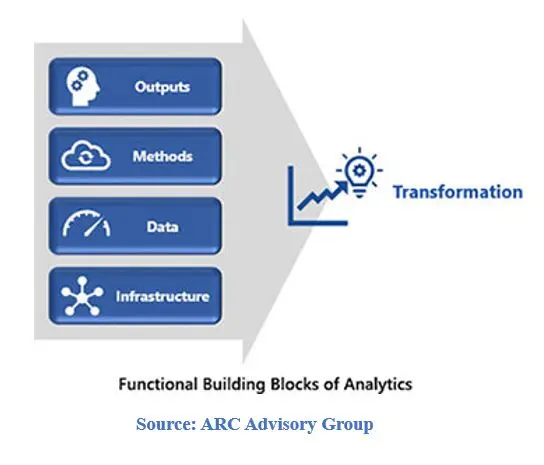


Data analysis focuses on the process of examining past data through business understanding, data understanding, data preparation, modeling and evaluation, and deployment. It is a subset of data analytics, which takes multiple data analysis processes to focus on why an event happened and what may happen in the future based on the previous data.
Data analytics is a multidisciplinary field. There is extensive use of computer skills, mathematics, statistics, the use of descriptive techniques and predictive models to gain valuable knowledge from data through analytics. Data analytics is used to formulate larger organizational decisions.
Digital analytics is the process of collecting, analyzing, and ultimately acting upon the data from all of a company’s digital sources. Companies use digital analytics to minimize churn, encourage experimentation, and increase the value of existing customers.
 Industrial analytics is a type of advanced analytics related to using operational data and enhancement of industrial processes. It includes software tools, methods, techniques, and components integrated into existing industrial automation solutions to enable data collection, storage, modeling, and analysis.
Industrial analytics is a type of advanced analytics related to using operational data and enhancement of industrial processes. It includes software tools, methods, techniques, and components integrated into existing industrial automation solutions to enable data collection, storage, modeling, and analysis.
As industrial assets are digitized with sensors and connected via the Industrial Internet of Things (IIoT), manufacturers still analyze machine data to create production efficiencies, reduce downtime, rein in costs, and promote better decision making. However, the environment has shifted when it comes to scale. Instead of a plant manager or maintenance worker analyzing historical data from a specific asset in a spreadsheet to make a modest change down the road, manufacturers are now aiming for wholesale transformation, where they are creating flexible and intelligent operations with networks of assets and systems being holistically automated and optimized in near-real-time.
The engine for such intelligent operations in areas like predictive maintenance, real-time quality control, and scenario testing for root cause analysis is advanced analytics, powered by artificial intelligence (AI) and machine learning. While the analytics category remains somewhat nebulous in the industrial world, use cases, like SaaS, are already sparking huge interest and growth.
Embarking on implementing any transformative technology is a complex endeavor that transcends the boundaries of individual divisions within an organization. To truly succeed in implementing industrial analytics and AI projects, organizations must collaborate across multiple divisions. This imperative arises from the intertwined nature of modern business functions, where siloed efforts can lead to inefficiencies and missed opportunities. Collaboration facilitates the alignment of goals, strategies, and resources, ensuring a cohesive approach toward digital transformation. Different divisions bring unique expertise and perspectives to the table, allowing for a comprehensive understanding of the organization’s current state and future objectives. Moreover, cross-divisional collaboration fosters a culture of innovation.


